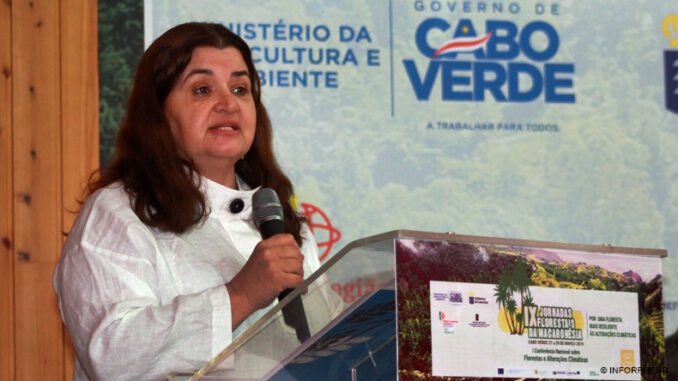
The United Nations and Cape Verde on Wednesday positively evaluated the implementation of the latest cooperation program, which mobilized about 95 million dollars and helped the country to improve several aspects, especially human capital.
“We are closing the United Nations Framework for Cooperation for Sustainable Development (UNDAF – 2018-2022) with great success, the mobilization of resources was around 95 million dollars (90.5 million euros),” said the interim resident coordinator of the United Nations System, Ana Touza, on the sidelines of a meeting of the program’s steering committee in Cape Verde.
In addition to the funds, the official mentioned that in the framework of the program the United Nations has mobilized a lot of technical assistance in the most diverse areas of knowledge, in everything that has to do with development.
“And I think that is the added value of the United Nations in Cape Verde,” she stressed, indicating that there was a special mobilization of resources to help the country cope with the covid-19 pandemic and also the food security crisis caused by the war in Ukraine.
“Knowledge and funds to help Cape Verde come out of the crises quickly,” he stressed.
The Secretary of State for Foreign Affairs and Cooperation, Miryan Vieira, also made a “positive balance” of the five-year cooperation framework that now ends, noting that the United Nations has supported the country since the early days of independence for the formulation of policies for development, especially in reducing vulnerabilities.
In the last five years, the Cape Verdean government spokesperson said that the program has helped the country strengthen its human capital, which continues to be one of the priority areas for the next cooperation framework (2023-2027).
Miryan Vieira also listed several actions that have been taken to create structures that can allow the country to have a sustainable development, especially in the environmental component, should Cape Verde not be one of the most affected by climate change.
“And the United Nations knew how to help and outline with the Government actions that aim to mitigate the impacts, the effects of climate change,” said the Secretary of State.
As for the next cooperation program (2023-2027), which was signed in October and begins to be implemented on January 1st, the interim resident coordinator said that the “perspectives are good” and a good part of the approximately 115 million dollars (109.5 million euros) is already being mobilized.
“There is a great deal of cooperation, investments in the policy areas, a lot of effort in the environmental, health, and social inclusion areas, a great effort especially to improve the conditions of the most vulnerable population,” projected Ana Touza, noting that one of the priorities of the next framework is to reduce absolute poverty and eradicate extreme poverty by 2026.
“This has to be a moral commitment from all of us and the United Nations is fully committed to Cape Verde”, assured the same official.
The Secretary of State for Foreign Affairs and Cooperation, Miryan Vieira, also made a “positive assessment” of the five-year cooperation framework that is now ending, noting that the United Nations has supported the country since the early days of independence in the formulation of development policies, particularly in reducing vulnerabilities.
Over the past five years, the Cape Verdean government spokeswoman said the program has helped the country strengthen human capital, which continues to be one of the priority areas for the next cooperation framework (2023-2027).
